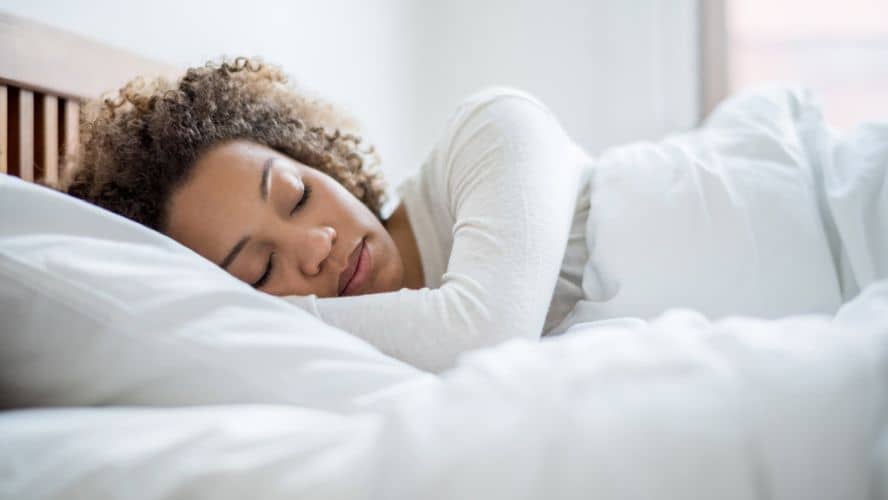
27 Jul Importance of Sleep When You Have Mental Health Issues
Wondering about the co-relation between sleep and mental health. Find how does sleep affect mental health in this blog.
Adequate sleeping time is important for all of us to live a healthy and happy lifestyle.
This is the time when our body gets time to recover and buckle up itself for physical and mental functioning for the next day.
Moreover, it also affects our immunity, metabolism, and chronic disease risk as well.
But this isn’t all. There’s a close relation between your mental health and sleep.
And that’s why we’re here.
If you have any psychological or sleeping disorder or you know someone, connect with the Best Psychiatrist in Patna for personalized treatment.
In this blog on how does sleep affect mental health, we will look at some points that can certainly help you.
Let’s get started.
Relationship Between Sleep and Mental Health
Sleeping is important and it is scientifically proven to have at least 6 to 8 hours of it. This helps you to stay in good physical and mental health.
However, in today’s hectic lifestyle, sleep deprivation is quite common now.
For short term, you can feel a bit more exhausted and irritated. But in a long run, it can lead to sever health consequences.
Research also suggests that a lack of sleep is also linked to higher chances heart diseases, and diabetes.
In addition to these, sleep deprivation can also cause some psychiatric conditions. Depression, anxiety, bipolar diseases are a few to name.
In some cases, it has been seen that if a person has any ill mental condition then a lack of sleep can also worsen the problem. It can trigger the onset of certain psychological conditions as well.
Due to all these conditions, it is important to have a undisturbed adequate sleep.
It is recommended to talk to your doctor if you’re facing problems while falling or staying asleep.
From the above discussion, you may already know how does sleep affect mental health?
Let’s now have a look at some of the major problems that sleep deprivation can cause.
Ill Effects of Sleep Deprivations
So you have decided to watch your television after the long day…This may be the worst decision you have made during your whole day.
A lack of sleep is the leading reason for majority of people who are diagnosed with certain mental health problems.
Have a look at those.
#1. Depression
Depression…a majority of us have or had gone through this at some point of our life. Further, it is also one of the major causes for the suicides around the world.
And a lack of sleep can actually cause depression. It is even scientifically proven.
To avoid this, have a good sleeping time, exercise, take good care of you, and seek for help when times get tough.
#2. Stress
Stress is another major mental health issue that we often face in our daily life.
Your daily hassles are the main causing factor along with sleep deprivation. Having stress means you will feel frazzled, short-tempered, mood swings, irritability and frustrated.
To avoid this, as usual have a good sleeping schedule, practice self-relaxation activities, take breaks, connect with others, and avoid drugs and alcohols.
#3. Anxiety
Like other psychological conditions, anxiety is also correlated with sleep deprivation. Or we can say, sleep and anxiety go in both directions. For instance, if a person has anxiety, he/she can face sleep deprivation. Also, if you have sleep deprivation, you can face anxiety as well.
In addition to these, a study has also found that children and teens are at higher risk for anxiety disorders if they have sleep deprivations.
To avoid this, eat a balanced diet, limit your alcohol intake, reduce sugar intake, do relaxing activities, and take out time for yourself.
#4. Bipolar Disorder
Bipolar disorder is medically defined as alternating periods of elevated and depressed mood. For people suffering from this, sleep deprivation is also quite common.
If you have bipolar disorder, connect with your health care professional without any delays.
If in Patna or nearby, connect with Dr. Vivek Pratap Singh for best Bipolar Disorder Treatment in Patna.
#5. Attention Deficit Hyperactivity Disorder (ADHD)
ADHD or attention deficit hyperactivity disorder is a common psychiatric problem that affects as many as 5.3% of children. And studies have linked ADHD with sleep deprivations. For instance, between 25% to 55% of ADHD affected children have sleep disturbances.
Several symptoms of ADHD include difficulty waking, sleep breathing issues, night walking, and daytime sleepiness.
So these were some major ill effects of sleep deprivations.
However, with the correct measures, you can prevent all these mental health problems. Also, if you need, don’t hesitate to consult a professional healthcare professional.
With that being said, let’s now end this log on how does sleep affect mental health. At last before leaving, read a summed up for the entire discussion.
Conclusion
Poor sleep can drastically impact your overall health conditions. Further, if you have any psychological conditions, it can even worsen the symptoms.
That’s why doctors around the world always recommend having an undisturbed sleep for at least 6 to 8 hours depending on your daily activities.
Along with this, you can also make some lifestyle changes that can help you in getting good sleep.
Hopefully, you have found all this information’s important and at the same time helpful.

No Comments